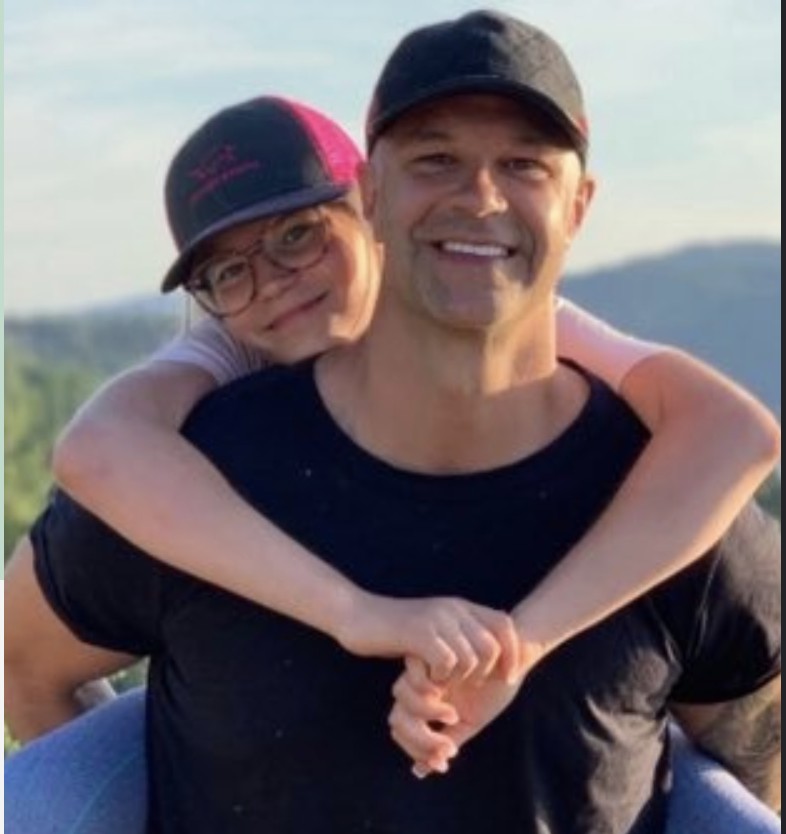Brantt Myhres, former NHL enforcer and addict, says “Hope is the conviction that you don’t have to fix a lifetime of mistakes in one day. It’s the belief that if you put enough of those days together, they’ll add up to something better.”
Brantt Myhres
Brantt was an NHL player who spent more time in the penalty box than on the ice. He was an enforcer; a fighter for over a dozen NHL teams. He weighed in at 6’4”, 220lbs as the heavyweight champion of the NHL. His teammates loved him, often paying his penalty fines because he protected them from opposing enforcers. His opponents hated and feared him. They were often one Brantt Myhres’ punch away from a career ending injury.
In his memoir, Pain Killer, he described how, during his playing days, he was hopelessly addicted to alcohol and cocaine. He revealed that he was most dangerous on the ice while he was using. Failure after failure made him believe he would never find the bottom but when he did, he turned to God, and went into rehab.
Brantt says “The only way out is hope.”
Strategy
Are you familiar with the declaration “Hope is not a strategy”? Harvard Business School begs to disagree.
In 2010 Harvard published a study about leadership hope. The author, Marshall Gantz wrote about the responsibility to combine the tensions of the world’s pain with the experience of the world’s possibility and avoid being numbed by despair or deluded by optimism. That’s hope.
And that’s why I’m hopelessly addicted to writing stories about hope. There won’t be any sense of regret on my part if you are drawn into a conspiracy to become a hope dealer. Words create worlds. Do you feel called as a writer to go beyond font and syntax to craft pieces that lift the minds of readers to envision the possibilities hidden in plain sight? More power to you.
Possibility
Hope is a feeling of trust or an expectation of a certain outcome. It’s not a buzzword or a catchy slogan, but a real genuine feeling of possibility that comes from doing the right things.
Part of writing is accepting the responsibility to portray hope in a way that enables others to achieve in the face of uncertainty.
Hope is not always a guarantee for success. However, anyone can use the slightest amount of hope to chip away at the barriers of reality and impossibility. Brene Brown says, “Hope is not an emotion; it’s a way of thinking or a cognitive process. Emotions play a supporting role, but hope is really a thought process made up of a trilogy of goals, pathways, and agency.”
More Than Wishful Thinking
In my book, “You’re Going to be OK,” there are eleven stories of women who faced child sexual abuse, cancer, mental illness, loss, and death. When I spoke with them about their experiences, they all said that during their traumas they wished someone had told them they were going to be OK.
Hope is created at the intersections of:
1) passion—a desire for something greater,
2) perseverance—the need to prevail against great odds, and
3) faith—the belief that there could be something greater beyond those odds.
Hope is not wishful thinking. It is not whistling in the dark or pretending problems don’t exist. Hope knows problems don’t last forever.
Embrace Reality
Hope embraces reality. When you look around you, what you see can be discouraging, but facts are your friends. Anchor yourself in everyday reality. Write in such a way that you gift courage to others to face it, name it, and acknowledge what is happening around them. Call it out.
Hope does not wear rose-colored glasses. Living out of reality may make the task look harder but it will cause you to lean into God for help and that’s always a good thing.
And when your plans succeed all the greater glory to God.
Please share this post and join the conversation about hope below. Thank you.
Hope grows here. We share stories that inspire people, build faith, and offer lasting purpose.
We’d love to have you Subscribe to REVwords. We’ll put helpful content into your inbox Mondays and Fridays.





